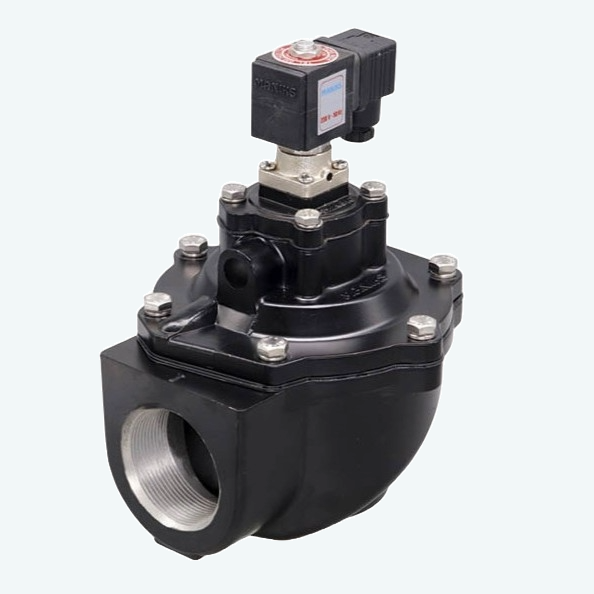Preventive Maintenance Strategies to Maximize Industrial Valve Lifespan
Industrial valve are the silent workhorses of every manufacturing plant, refinery, power station, and water treatment facility. They regulate flow, pressure, and safety in complex systems. Yet, because valves often work behind the scenes, they don’t always receive the attention they deserve—until something goes wrong.
Unplanned valve failures can lead to costly downtime, safety hazards, and expensive repairs. The good news? With preventive maintenance, engineers and plant managers can extend the lifespan of valves, improve system efficiency, and avoid unexpected breakdowns.
At Maniks, we believe that the reliability of your operations starts with the reliability of your valves. In this article, we’ll share actionable preventive maintenance tips to help you keep industrial valves performing at their best.
Why Preventive Maintenance Matters for Valves
- Reduces downtime: A small leak or jammed valve can halt entire operations.
- Enhances safety: Valves play a critical role in controlling pressure and preventing accidents.
- Improves efficiency: Well-maintained valves ensure smooth operations, reducing energy loss.
- Cost savings: Preventive care is far less expensive than emergency replacements.
1. Regular Inspection Schedule
Set up a systematic inspection plan. Depending on the type of valve and operating conditions, inspections should be done weekly, monthly, or quarterly.
Check for leaks: Look around valve bodies, seals, and connections.
Listen for unusual sounds: Grinding or hissing can indicate internal wear.
Test operation: Open and close the valve to ensure smooth functioning.
A detailed inspection log helps track wear patterns and predict replacement needs.
2.Lubrication is Key
Just like machinery, valves require proper lubrication for smooth movement.
Use manufacturer-recommended lubricants—incorrect products can cause corrosion or clogging.
Apply regularly—especially for valves that are rarely operated.
Avoid over-lubrication—too much grease can attract dust and debris.
At Maniks, we recommend lubrication as part of every scheduled maintenance cycle.
3.Protect Against Corrosion
Corrosion is one of the leading causes of valve failure, especially in harsh environments.
Choose the right material: Stainless steel or alloy valves perform better in corrosive settings.
Apply protective coatings: Epoxy coatings can extend valve life in chemical plants or offshore industries.
Monitor environment: Humidity, temperature, and chemical exposure accelerate corrosion.
Regular cleaning and coating checks can add years to your valve’s lifespan.
4.Exercise the Valves
Industrial Valves that remain in a static position for long periods are prone to seizing.
Operate idle valves periodically to keep them functional.
Automate exercise cycles where possible, especially in water treatment and oil & gas plants.
This simple practice prevents valves from sticking during emergencies.

5.Replace Seals and Packing on Time
Seals, gaskets, and packing rings are small components that make a big difference.
Monitor for leaks around the stem or bonnet—this often signals worn packing.
Replace proactively rather than waiting for failure.
Stock spares to avoid supply delays during breakdowns.
Routine replacement of these consumables prevents bigger issues later.
6.Train Your Maintenance Team
Even the best equipment fails without skilled handling.
Conduct regular training sessions for technicians.
Update them on new valve technologies such as smart or automated valves.
Encourage documentation of every maintenance activity.
Well-trained staff ensures consistent care and fewer errors.
7. Monitor Valve Performance with Technology
Digitalization is reshaping maintenance practices.
Use smart sensors to track pressure, temperature, and valve position.
Leverage predictive maintenance software to identify early signs of wear.
Integrate IoT-enabled valves for real-time data and remote monitoring.
Maniks has been actively exploring digital solutions to help industries adopt smarter maintenance practices.
8. Follow Manufacturer Guidelines
Every valve is unique. Always refer to the manufacturer’s manual for maintenance schedules, recommended lubricants, and spare part details. Following these guidelines ensures compliance and optimizes performance.
Conclusion
Preventive maintenance isn’t just about extending the lifespan of industrial valves—it’s about ensuring safety, efficiency, and reliability in your operations. By following a structured maintenance plan that includes inspections, lubrication, corrosion protection, seal replacement, and staff training, plant managers can reduce downtime and operating costs significantly.
At Maniks, we don’t just manufacture valves; we partner with industries to keep operations running smoothly. With the right care and attention, your valves can serve reliably for years, safeguarding both productivity and people.
